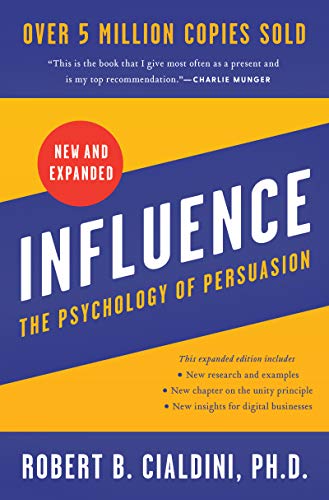
Influence, New and Expanded: The Psychology of Persuasion

the amount we’re willing to pay for things often depends, to a large degree, on how fair the price appears to be.
Dan Ariely • Dollars and Sense
There is much research on what psychologists call equity theory, which shows that most people have the need to reciprocate what they get from others; in fact, most of us feel discomfort when we’re unable to give back something of equal value. This applies to material things, like a gift or money, as well as to nonmaterial things like kindness or tr
... See moreTal Ben-Shahar • Short Cuts to Happiness: Life-Changing Lessons from My Barber
The interesting thing about the Regan experiment, however, is that the relationship between liking and compliance was completely wiped out in the condition under which subjects had been given a Coke by Joe. For those who owed him a favor, it made no difference whether they liked him or not; they felt a sense of obligation to repay him, and they did
... See moreRobert B. Cialdini PhD • Influence: The Psychology of Persuasion (Collins Business Essentials)
This is how FAIRNESS impacts our perception of value. Most people above age five, and not actively engaged in politics, understand the concept of fairness. We recognize it instantly when we see it or talk about